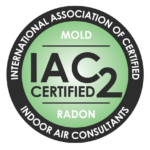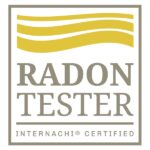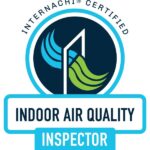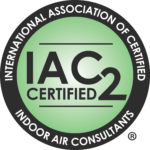Protect Your Property's Health with Montgomery County's New Radon Testing Bill 26-22
Montgomery County has taken a big step towards ensuring the safety of its residents with the new Radon Testing Bill 26-22. This bill mandates radon air testing prior to occupancy for basement and ground-level multifamily and single-family rental housing. Educational information on radon, testing, and mitigation must also be provided to tenants. Landlords are responsible for reducing high levels of radon and re-testing to ensure that the levels are below the recommended EPA action level. If there are conflicting test results, tenants have the right to terminate their lease if the landlord fails to mitigate. This new legislation broadens the coverage of Bill 31-15 enacted in 2015. With Montgomery County being in Zone One, which is at a higher risk for radon exposure, it is crucial for renters to ensure that their home is safe from high levels of this naturally occurring radioactive gas. Stay safe with Montgomery County’s new Radon Testing Bill 26-22.
Fill out the form and call Peak today!
Protect Your Home with Peak
Peak Answers to Common questions
The U.S. Environmental Protection Agency (EPA) recommends fixing your home if radon levels are above 4 picoCuries per liter of air (pCi/L). Peak can help you find the right solutions if mitigation happens to be needed.
EPA recommends that testing device(s) be placed in the lowest level of the home suitable for occupancy. This means testing in the lowest level (such as a basement), which a buyer could use for living space without renovations. Also for best results, testing should take place at least 3 feet from any windows, doors, or openings.
Your prospective home will undergo many required inspections and tests before you buy it. You want to make sure that the home you’re making an offer on is in a good, livable condition. The Peak team ensures peace of mind when it comes to the big purchase with professional testing and tamperproof systems.
Radon levels tend to be higher during the winter or colder months. This is due to a phenomenon known as the thermal stack effect, where the colder temperatures outside cause the air inside the home to warm up and rise, creating a kind of vacuum that draws in air from the ground, bringing radon with it. It is essential to monitor radon levels in the home, especially during this time, to ensure the health and safety of residents. Regular testing can help mitigate the risks associated with radon exposure and prevent long-term health consequences.
Radon gas is incredibly dangerous due to its radioactive properties. Once inhaled, its particles become trapped inside the lungs, exposing the surrounding tissues to ionizing radiation. Over time, this exposure can lead to the development of cancerous cells, particularly in the form of lung cancer. Unfortunately, the effects of radon are not immediately apparent, making it an insidious threat to human health.
Adding to this concern, recent estimates from the EPA reveal that radon currently causes an alarming 21,000 deaths from lung cancer each year. This makes it the leading environmental cause of cancer. These statistics alone highlight how crucial it is to raise awareness about this deadly gas and emphasize the significance of implementing measures to control radon levels in homes and other indoor environments.
Radon poisoning is a serious health concern that occurs when an individual is exposed to high levels of radon gas. When inhaled, radon gas can damage the cells lining the lungs, leading to lung cancer. The symptoms of radon poisoning are similar to those of other respiratory conditions, including shortness of breath, a new or worsening cough, pain or tightness in the chest, hoarseness, and trouble swallowing. The symptoms may vary depending on the extent of exposure and how long the individual has been exposed to radon.
Why your neighbors choose Peak
Qualified Experts
Our team of qualified professionals are up to date on all mandated testing for all of our services.
Amazing Value
Paired with our industry-leading service, our team will ensure you get the most out of your inspection.
Flexible Schedule
Our amazing team of client care professionals will ensure that we're able to schedule at a time that works for you.
The Peak difference
- #1 Trusted Tamper- Resistant Technology
- Accurate and reliable readings.
- Professional team to guide you through the testing process.
The Peak team experts utilize continuous radon monitoring devices to conduct our radon tests. We ensure a controlled testing procedure with the use of these sophisticated devices to help you make a clear decision. These devices measure and document the amount of radon in the air, as well as air temperature and barometric changes (which occur if windows or doors are opened during the test period.) Our team’s expert analysis will walk you through how radon testing works and provide solutions on if you need radon mitigation.




Meet Our Team

Dane

Ritik

Luke

Sonne

